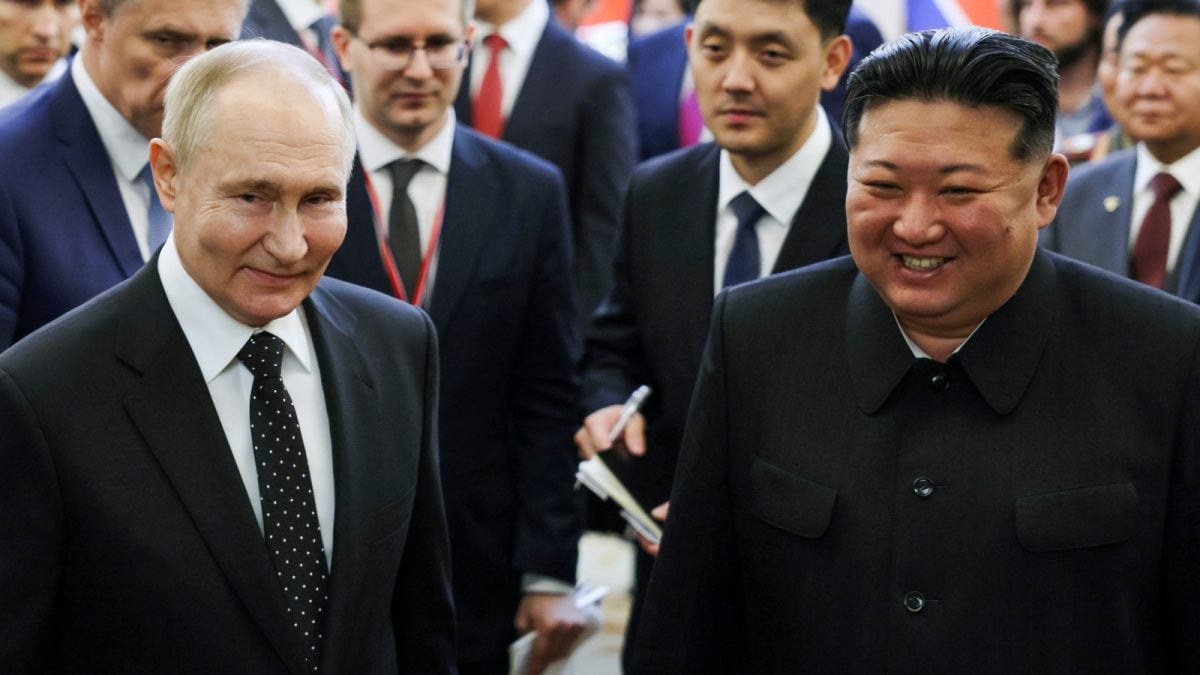ARTICLE AD BOX
In April, the Supreme Court, in a first, said that the President must take a decision within three months on bills referred by governors.

The bench, led by Chief Justice of India BR Gavai, noted that the Constitution had described the Governor as a vital link between the Union and the states. (File photo)
The Supreme Court on Thursday resumed hearings on a Presidential Reference seeking clarity on whether Governors and the President can be given a time limit to decide on state bills pending with them.
The case has gained attention after several state governments complained of bills being left unattended for long periods.
Appearing for the Centre, Solicitor General Tushar Mehta questioned whether state governments could even approach the Supreme Court under Article 32 of the Constitution, which is meant only for the protection of fundamental rights.
"A State Government, as a constitutional entity, does not have fundamental rights," he argued, adding that disputes of this nature should instead be raised under Article 131, which deals with disputes between states and the Centre.
Mehta told the bench that one constitutional body cannot claim jurisdiction simply because another body has failed to act.
"One constitutional organ not deciding or not doing something for years does not give another constitutional organ jurisdiction," he said.
He also stressed that courts could not issue directions to a Governor, who functions as a representative of the President of India, not of the Union Government.
To underline his point, Mehta gave an example, "If there is a law-and-order breakdown in a state and the local police fail to control it, can the Union Government file a petition under Article 32 seeking deployment of paramilitary forces? The answer is no".
The bench, led by Chief Justice of India BR Gavai, noted that the Constitution had described the Governor as a vital link between the Union and the states.
Senior advocate Abhishek Manu Singhvi, representing the Tamil Nadu Government, countered Mehta’s arguments.
He stressed that the Governor is bound by the advice of the Council of Ministers. "While the Governor is part of the legislative process, he is not part of the legislation itself. Any claim of broad discretion will only create chaos," Singhvi submitted.
He criticised the practice of withholding assent without any decision, describing it as unconstitutional. "Returning a bill without acting amounts to a fourth option of eternity," he said, warning that such practices undermine democracy.
Several bills in Tamil Nadu, Andhra Pradesh, and Telangana, he noted, have been stuck in this manner. "Such a discretion goes far beyond anything Dr Ambedkar even dreamt of," he added.
Chief Justice Gavai remarked that earlier rulings had not fixed time limits because the court had not anticipated bills being "kept in cupboards for years together".
Justice PS Narasimha observed that inaction by legislatures leads to lapses, but bills returned to the Governor cannot be left to die out.
The court will continue hearings on the matter in the coming weeks.
THE CONTROVERSY
In April, the Supreme Court, in a first, said that the President must take a decision within three months on bills referred by governors.
The top court's ruling came as it set aside the Tamil Nadu Governor's decision to withhold assent to pending bills.
While delivering the verdict in the Tamil Nadu case, a bench of Justices JB Pardiwala and R Mahadevan said the discharge of functions by the President under Article 201 was amenable to judicial review.
As per Article 201, when a bill is reserved by a governor, the President shall declare that either he/she assents to the bill or he/she withholds assent therefrom. However, no timeframe is provided in the Constitution.
The Supreme Court underscored that the President does not have a "pocket veto" and has to either grant assent or withhold it.
- Ends
Published On:
Aug 29, 2025



.png)
.png)
.png)
















 5 hours ago
3
5 hours ago
3










 English (US) ·
English (US) ·